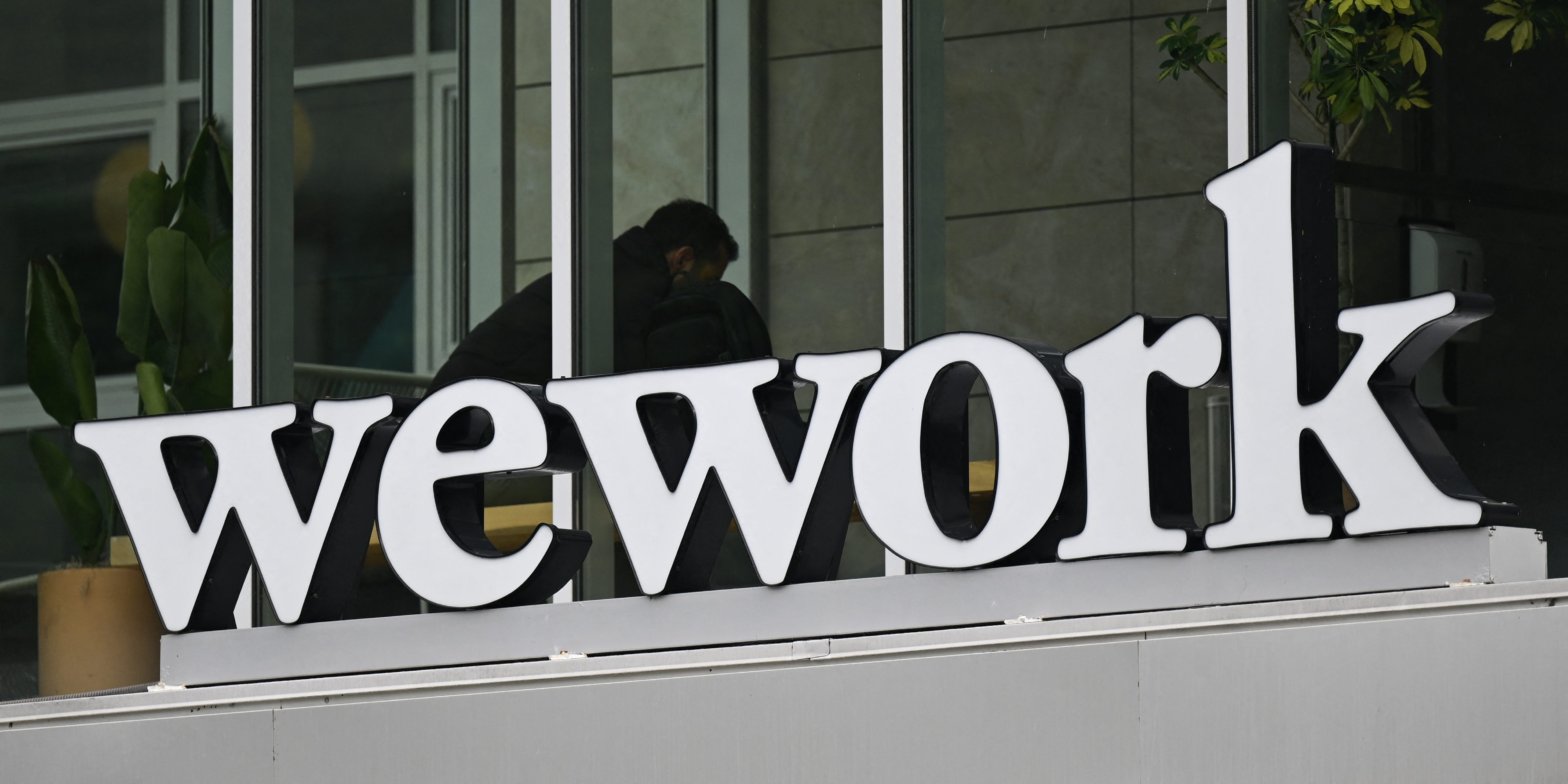Warning investors you company could be on the verge of bankruptcy is not as bad as it sounds in meme-stock world.Companies that have recently warned of imminent bankruptcy have seen their stock prices soar.WeWork is the latest company to enter meme status with a surging stock price despite bad news. Loading Something is loading.
Thanks for signing up!
Access your favorite topics in a personalized feed while you’re on the go.
In the strange world of meme stocks, WeWork’s warning that it has “substantial doubt” that it can keep operating due to massive financial losses means it could be the next big thing for investors.
It may sound counter-intuitive, but the playbook often used by the meme-stock crowd is to bid up the stock prices of companies that are flat-out telling investors they could soon be out of business, a scenario that often wipes out the entire value of equity in the business.
WeWork is the latest example. This week it saw its stock price soar as much as 162% after it warned investors of its financial troubles. The stock traded up as much as 49% on Friday, but eventually slashed those gains in half to about 20%.
And WeWork is not alone. Shares of trucking company Yellow soared about 800% since it warned investors of an imminent bankruptcy filing earlier this month, while Tupperware stock rocketed more than 800% over the past three weeks despite its fast deteriorating financials.
The meme-stock playbook of bidding up the stocks of failing companies with good brand recognition first got its start in early 2021 with GameStop, as a band of retail investors on Reddit piled into the struggling video-game retailer and sent its stock price soaring to astronomical levels. The phenomenon hit AMC Entertainment stock just a few months later.
The meme-stock price boom, usually driven by retail traders that gravitate towards low-priced stocks, could have a meaningful impact on the underlying company, as it can afford them a new avenue of fundraising via the sale of shares at inflated prices.
That’s important because a failing business usually has few avenues to turn to when it comes to raising money, and selling equity is often a last ditch effort before ultimately filing for bankruptcy.
In WeWork’s case, it’s seen a sharp decline since it went public via a SPAC in 2021. The stock is down 98% since its $10 SPAC deal price, with its valuation plummeting from a peak of $9 billion to about $500 million. That’s after the company initially tried to go public at a valuation of nearly $50 billion.
The disruptive co-working office company has yet to mint a profit, losing $16.4 billion since 2018, according to data from YCharts. A resilient work-from-home trend and financial strains on the commercial real estate sector have not helped the company. Nor has the company’s revolving door of leadership.
While most investors would run away at the first hint a company may go under, the meme-stock crowd often gravitates toward such names in an attempt to give it another breath of life with the hopes of minting massive gains.
But as fast as these meme-stocks can rise on little-to-no-good news, they can also crash. Buyer beware.
